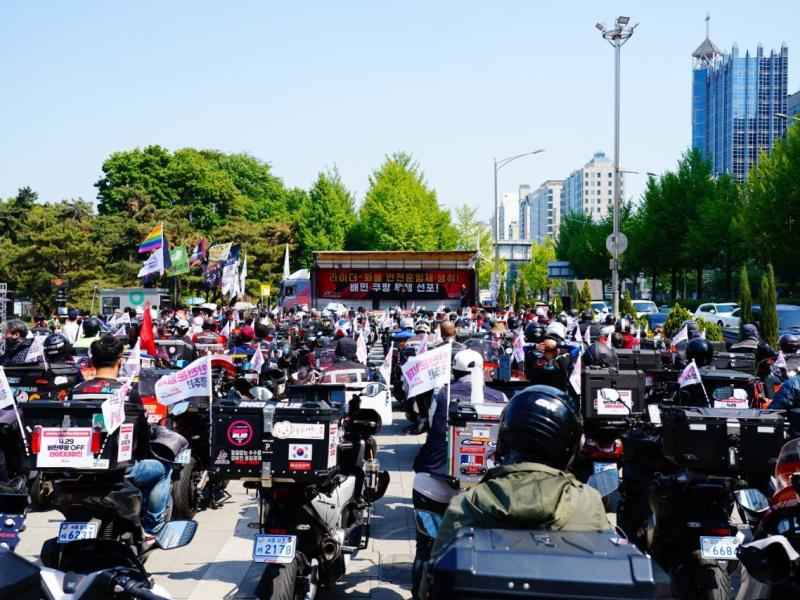On World Toilet Day, 19 November, the ITF held a virtual sanitation forum to discuss issues on sanitation for transport workers in road, rail, urban transport and warehousing. The forum, which specifically focussed on women transport workers, brought together transport workers from 47 unions in 33 countries.
“Safe access to decent sanitation facilities, and most importantly the ability to use them when needed, is a global issue faced by all transport workers,” noted Lana Payne, ITF Executive Board member.
Transport workers spoke about the indignities they encounter on the job, working long shifts and with limited or no access to sanitation facilities. Train drivers in India talked of having to cope with the lack of facilities “by not eating or drinking during shifts,” while in Brazil rail workers said they resorted to “wearing adult diapers and using bottles to urinate in.”
The Covid-19 pandemic has exacerbated longstanding problems in accessing sanitation facilities, with transport workers at the forefront of the crisis and exposed to the virus, often with limited or no access to sanitation.
Transport workers who prior to 2020 relied on the facilities at cafés and restaurants suddenly found those facilities closed during national lockdowns, and were forced to relieve themselves in bushes or at the side of the road.
“We often think of a lack of safe access to sanitation as being a non-European issue, and people are surprised when they realise these conditions are a reality for transport workers in Europe. Covid-19 has exacerbated the situation and now, for example,many truck drivers get to the end of their journey and aren’t even allowed to use the facilities of where they are delivering,” said Edwin Atema, ITF Executive Board member.
Women transport workers are particularly affected, with many workplaces still not providing separate facilities for women workers. This exposes them to gender-based violence and ill-health, in turn creating barriers to their employment in the transport industry.
The forum heard that in Kenya, “Matatu workers are forced to use toilets in restaurants along their journey. Often to use these toilets you have to pay for a meal or a drink, so the drivers choose the cheapest restaurants to stop at. This means the facilities are often unhygienic and, in some cases, unsafe. This is especially the case for women transport workers who go to the toilet in groups of two of three, after one woman was raped.”
Warehouse workers face similar problems accessing safe and hygienic toilets. One Turkish worker explained: “Before the union, the company used to ask employees to clean the toilets. When the union came, they insisted the company hire a cleaning company. There are many unisex toilets for warehouse workers in Turkey, but many of these toilets do not take women into consideration and are designed for men and their bodies. For example, many toilets do not have any bins inside them for sanitary products.”
The forum agreed to demand action from employers to ensure women and men workers have the access to the sanitation facilities they are entitled to. Participants agreed on an open letter to employers detailing the urgency of access to decent sanitation during the Covid-19 pandemic.
Now more than ever, the forum participants agreed, all transport workers must have access to decent and safe sanitation and washing facilities. This must be accompanied by policies that enable workers to use those facilities without fear of reprisal.
The ITF’s Sanitation Charter calls for global action from governments, employers and international bodies on safe access to decent sanitary facilities for all transport workers. In response to the Covid-19 crisis, the ITF launched their Covid-19 demands for safe access to sanitation and guidance for trade union negotiators, including urgent and necessary actions from employers and governments.
For more information on the ITF campaign on safe access to decent sanitation facilities and the ITF Transport Workers’ Sanitation Charter, please contact sanitation@itf.org.uk.




